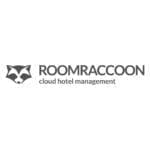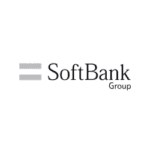 Generating revenue is key to any business, including hotels. This is why it is common for most hoteliers to put all their effort into transactional marketing in the industry. This means the focus is mainly on short-term relations with guests, and once the transaction is done (the booking is made), the relationship ends.
Generating revenue is key to any business, including hotels. This is why it is common for most hoteliers to put all their effort into transactional marketing in the industry. This means the focus is mainly on short-term relations with guests, and once the transaction is done (the booking is made), the relationship ends.
Can you see what this approach is lacking? A good long-term strategy, and for that, hoteliers need to make the switch from transactional to relationship.
Why is transactional marketing not enough in the hotel industry?
Transactional marketing in the hotel industry focuses on short-term, one-time interactions with guests. It aims to drive immediate sales and bookings through various promotional tactics.
This approach promotes enticing offers, discounts, and special deals to attract guests and encourage them to make reservations. However, after the booking, the guest doesn’t hear back from the hotel until the reservation begins.
There is no useful exchange of information, no extra value delivered to the guest and no relationship-building.
Transactional marketing effectively captures the attention of price-sensitive travellers and boost occupancy during specific periods. For example, offering a limited-time promotion for a discounted room rate during the off-season to attract budget-conscious travellers.
But the question you should ask yourself is: is this enough to bring back your guests in the future? Will they choose again to stay in your hotel?
Why should you focus on relationship marketing?
Relationship marketing can be on the opposite side of transactional marketing. It focuses on building long-term connections and loyalty with guests. It emphasises understanding individual guest preferences and delivering personalised guest interactions to improve satisfaction and create lasting relationships.
This approach involves engaging with your guests before, during, and after their stay, aiming to create emotional bonds and repeat business. Relationship marketing fosters customer loyalty, encourages positive reviews, and generates word-of-mouth referrals.
A report by Skift Research states that hotels with effective relationship marketing strategies see a 20% increase in repeat business and a 5% increase in direct bookings. This means you are investing in long-term results instead of just quick fixes.
Moreover, there are several other reasons why you should focus on relationship marketing instead of fully doing transactional marketing.
First, relationship marketing can lead to higher customer lifetime value. This is because customers who have a positive relationship with your hotel are more likely to stay there again in the future, and they are also more likely to recommend the hotel to their friends and family.
Second, relationship marketing can help to reduce your marketing costs. This is because if your brand has a loyal customer base, you don’t need to spend as much money on advertising and promotions.
Third, relationship marketing can help to improve guest satisfaction. Customers who feel valued and appreciated by customer service are more likely to be satisfied with their stay.
How can you implement relationship marketing in your hotel?
In the long run, relationship marketing is a more sustainable and profitable strategy for hoteliers. Building relationships with your guests can generate more revenue and build a strong name in the industry.
Here are some examples of how you can focus on relationship marketing:
Personalise the guest experience
One of the best tools you can use for this is a CRM designed for hospitality. With this, you will gather guest data to learn about each guest’s preferences and needs. This information can then be used to personalise the guest experience by providing welcome amenities, offering recommendations for activities, or sending birthday greetings.
You can do much more with a hospitality CRM to build a deeper connection with your guests and elevate their experience. Here are six must-try functions of a hotel CRM.
Reward loyalty
Offer loyalty programs that reward guests for repeat stays. This can be done by giving guests points that can be redeemed for free nights, upgrades, or other perks.
Go above and beyond
Do something unexpected to make a guest’s stay even more special. This could involve giving them a complimentary upgrade, sending them a thank-you note, or simply taking the time to get to know them and their needs.
Practise sustainability
If you present your hotel as a sustainable one then you can cater to travellers who are environment enthusiasts and ask them to play their part. Share authentic stories about the people and practices behind the hotel’s sustainability efforts. Highlight staff members dedicated to maintaining eco-friendly practices and share their journeys.
Engage with your guests across the entire guest journey
Every stage is essential and through communication, you can add value to each one of them. Reach out to your guests through your preferred channels, using a multi-channel CRM and deliver campaigns with valuable information. Don’t go silent after the booking is made.
Key takeaways
By focusing on relationship marketing, you can create a loyal customer base that will keep returning for more. This is a more sustainable and profitable strategy than focusing only on transactional marketing, and it can help you achieve your business goals.
This means you should work on implementing guest-centric relationship marketing strategies since they offer many compelling benefits. First and foremost, it leads to heightened customer loyalty as personalised interactions and tailored experiences foster a strong emotional connection between guests and your hotel.
This, in turn, enhances guest satisfaction, as guests feel valued and understood, leading to positive feedback and repeat visits. Moreover, the ripple effect of such dedicated efforts contributes to an improved brand reputation, with satisfied guests becoming brand advocates who spread positive word-of-mouth recommendations.
As a result, the hotel not only attracts new guests but also witnesses increased revenue through higher occupancy rates, repeat business, and the positive impact of enhanced brand image.
In essence, relationship marketing proves to be a powerful tool that solidifies guest loyalty and satisfaction and bolsters the hotel’s overall success and profitability.

































